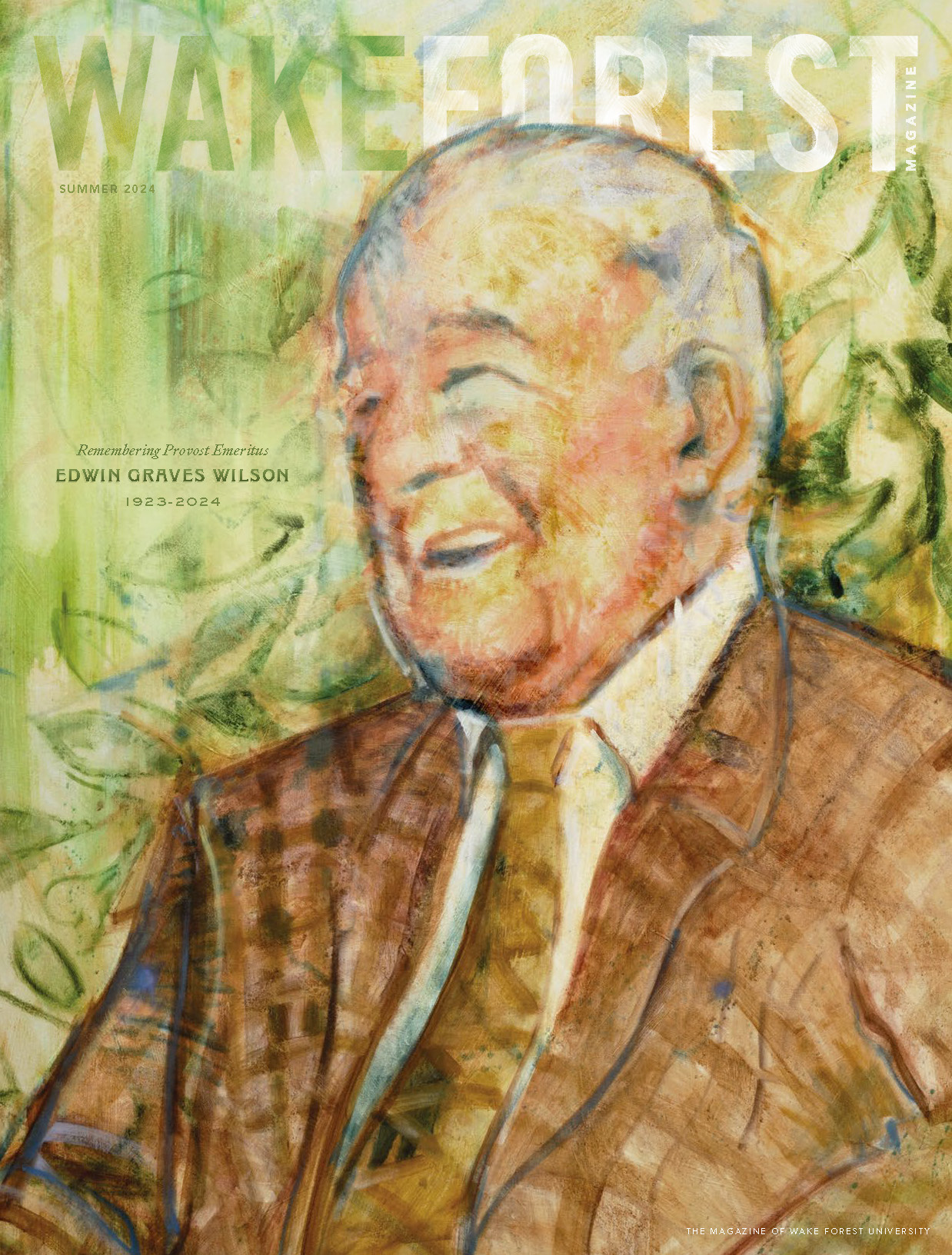When you think about wellbeing, what comes to mind? The ability to run a marathon? Eating a salad for lunch every day? Successfully combating a mood swing? Reaffirming your faith in God or a higher power? The truth is, if the concept of wellbeing were a tangible object, it would probably look like the die from the Scattergories board game of your youth or a precious gemstone — in other words, it’s multifaceted, and each flat plane represents something different to each person. Meet Wake Forest alumni who acknowledge this complexity by addressing the physical, mental and spiritual needs of others and, in the process, provide life lessons in wellbeing.
Meghan Claffey Cline (’04) of Winston-Salem, North Carolina
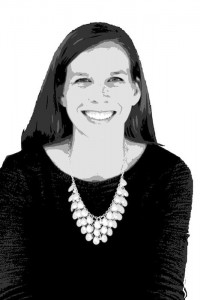 “You can give somebody a prescribed meal plan and say, ‘OK, if you eat 1,400 calories a day, you will lose weight. And the weight is going to fall right off you.’ But there’s a reason why it never lasts for many people. They don’t often do the deep dive into understanding ‘Why is it hard for me to stick to those changes?’ ” says Meghan Claffey Cline (’04), who has spent her career as a wellness coach, helping people connect the dots and achieve long-term weight loss success.
“You can give somebody a prescribed meal plan and say, ‘OK, if you eat 1,400 calories a day, you will lose weight. And the weight is going to fall right off you.’ But there’s a reason why it never lasts for many people. They don’t often do the deep dive into understanding ‘Why is it hard for me to stick to those changes?’ ” says Meghan Claffey Cline (’04), who has spent her career as a wellness coach, helping people connect the dots and achieve long-term weight loss success.
A health and exercise science major, Cline was motivated to go into this field after a summer research project she took part in before her senior year at Wake Forest with Jack Rejeski (P ’05, ’08), Thurman D. Kitchin Professor in the health and exercise science department and director of the Behavioral Physiology Laboratory. For the project, Cline helped develop a weight-loss program based on scientifically proven methods and translated all of it into easy-to-digest information. “What strikes me most as I look back on that experience was how readily available he made himself to answer my (many) questions and offer guidance on my project, but at the same time offering me a level of autonomy that seemed to imply he had faith in my capability to complete the project on my own,” says Cline.
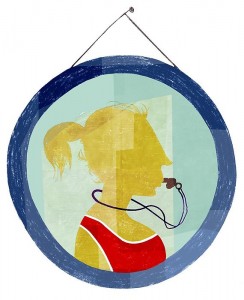 After getting a master’s degree in health education at Johns Hopkins University in Baltimore and wellness coaching certification from The Institute for Professional Excellence in Coaching, Cline went on to do worksite wellness planning and wellness coaching for different organizations. Now based in Winston-Salem, she coaches clients privately on the side — one lost 72 pounds over the course of a year — and works as a health coaching consultant for the federal government.
After getting a master’s degree in health education at Johns Hopkins University in Baltimore and wellness coaching certification from The Institute for Professional Excellence in Coaching, Cline went on to do worksite wellness planning and wellness coaching for different organizations. Now based in Winston-Salem, she coaches clients privately on the side — one lost 72 pounds over the course of a year — and works as a health coaching consultant for the federal government.
One key lesson Rejeski taught her was mindfulness. Cline stresses to her clients the importance of paying attention to what they’re feeling and thinking and how that affects their behavior. She even wrote a book on the topic called “Inside Out Weight Management: Overcoming Emotional Eating and Breaking the Cycle of Yo-Yo Dieting.”
“The bulk of what I do is helping people sort out why they eat when they’re stressed or why they feel guilty if they don’t clean everything off their plate,” says Cline. For other clients, the battle can be against perfectionism — fighting the urge to quit after one small slip-up and forgiving yourself. “I just get a total thrill from helping people achieve their own ‘aha’ moments,” she says.
Tom Jennings (’72) of Spartanburg, South Carolina
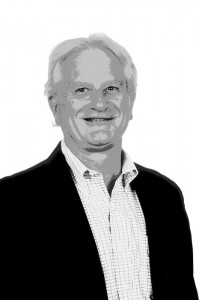 When Tom Jennings (’72) was a child, he remembers his parents driving him past Sentara Albemarle Medical Center, which was being built in Elizabeth City, North Carolina, where he grew up. “It fascinated me so much that I started asking a lot of questions, like: How do they build this thing? How do they design it?” he says.
When Tom Jennings (’72) was a child, he remembers his parents driving him past Sentara Albemarle Medical Center, which was being built in Elizabeth City, North Carolina, where he grew up. “It fascinated me so much that I started asking a lot of questions, like: How do they build this thing? How do they design it?” he says.
Thinking he’d like to work in health care administration when he enrolled at Wake Forest, he decided to take sociology (his major) and anthropology classes, along with business classes. “You need to understand cultures so you can interact with people and understand where they’re coming from. Then you can design and innovate programs that are going to be successful,” he says. For example, in serving a low-income community it might not make sense to expect patients to look something up on their home computer or iPhone. Jennings notes that health care providers might want to say, ‘Look this up on a computer at your local library’ or, better yet, provide informational resources on-site in the hospital.
The “4-1-4” plan at Wake Forest allowed Jennings to spend one month independently studying management at Sentara Albemarle Medical Center. “I got to know that it takes more than one person running a hospital — it takes a village,” he says.
 After graduate school at George Washington University in Washington, D.C., Jennings went on to work in health care settings in many states across the country, including South Carolina, Kansas and Nebraska. One of his largest achievements has been working for a company called NXT Health, where he is chairman of the board. There, Jennings and a team of roughly 25 people — many of whom were from the Clemson University Architecture + Health graduate program — spent eight years collaboratively designing an ideal patient hospital room of the future.
After graduate school at George Washington University in Washington, D.C., Jennings went on to work in health care settings in many states across the country, including South Carolina, Kansas and Nebraska. One of his largest achievements has been working for a company called NXT Health, where he is chairman of the board. There, Jennings and a team of roughly 25 people — many of whom were from the Clemson University Architecture + Health graduate program — spent eight years collaboratively designing an ideal patient hospital room of the future.
Some of its innovations include: enough room so the patient, family members and caregiver can have their own zones and not be squashed together, a closer bathroom to reduce the number of patient falls, windows exposing the patient to nature and natural light to improve mood, a TV that allows the patient to order meals from the dining area without getting out of bed and technology that allows the patient to easily dim the overhead lights. “It doesn’t resemble a hospital — it resembles a hotel,” says Jennings.
Jennings and his team created digital renderings (which can be viewed on nxthealth.org) as well as a prototype that’s being tested in Pelham Medical Center in Greer, South Carolina. Exit surveys document patients’ rave reviews. One prototype is even on display in New York City at the DuPont™ Corian® Design Studio. It’s called Patient Room 2020.
Jennings hopes that, in the future, hospitals will adopt part of or all of this model to improve the patient experience. The secret behind the project’s success? “When there’s more collaboration, there’s more innovation, which leads to better quality of life,” he says.
Carol Collier Harston (’06) of Louisville, Kentucky
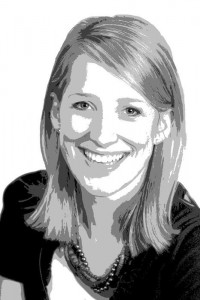 Carol Collier Harston (’06) remembers the moment she decided to pursue a ministry career. One day during junior year when she was running in Reynolda Gardens, it hit her. “I felt the distinct calling to love the world through my vocation,” says Harston, whose religion professors inspired her. “They invited me to serve others with my mind by unpacking all my previously constructed conceptions of religion. They also piqued my curiosity about how religion might influence others for the better,” she says.
Carol Collier Harston (’06) remembers the moment she decided to pursue a ministry career. One day during junior year when she was running in Reynolda Gardens, it hit her. “I felt the distinct calling to love the world through my vocation,” says Harston, whose religion professors inspired her. “They invited me to serve others with my mind by unpacking all my previously constructed conceptions of religion. They also piqued my curiosity about how religion might influence others for the better,” she says.
Being part of the Kappa Delta sorority also reinforced the sense of community she felt when she was part of a congregation: “The sorority drew together people who would not otherwise be drawn together. And you took care of one another.”
After graduation, Harston moved to Louisville, Kentucky, and began working as a youth minister at Highland Baptist Church. She meets with middle school and high school students twice a week to study the Bible and talk about life. Harston frames discussions around social justice issues such as homelessness or human rights. “The idea is to help them see things better around them,” she says.
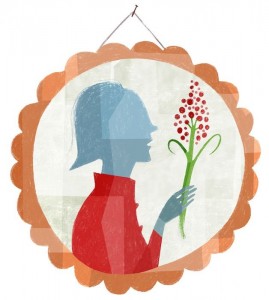 Her favorite part of the job is helping teens feel comfortable enough to articulate their feelings. One of the girls in her group, a high school senior, had been facing racial discrimination at school, and Harston encouraged her to talk about it publicly. The girl spoke openly about how it hurt to be treated unfairly by others and how dehumanizing it felt to have to check “other” on standardized tests because her race didn’t fit in a “box.” “Watching her do that, it was all within her, but I was just holding up a mirror to her,” says Harston. “I’m there to say, ‘What that person said to you is not right.’ I advocate for them and empower them so they know that it doesn’t have to be that way.”
Her favorite part of the job is helping teens feel comfortable enough to articulate their feelings. One of the girls in her group, a high school senior, had been facing racial discrimination at school, and Harston encouraged her to talk about it publicly. The girl spoke openly about how it hurt to be treated unfairly by others and how dehumanizing it felt to have to check “other” on standardized tests because her race didn’t fit in a “box.” “Watching her do that, it was all within her, but I was just holding up a mirror to her,” says Harston. “I’m there to say, ‘What that person said to you is not right.’ I advocate for them and empower them so they know that it doesn’t have to be that way.”
There’s a youth-group saying that Harston loves: No matter the road, we walk it together. And it helps give her youth strength. One of her 10th-grade boys had gone to the funeral of a friend’s grandfather. Afterward, Harston told him, “I’m really proud of you for going to that. I know that’s really hard.” Harston says he turned to her and said, “No matter the road, we walk it together.”
Harston’s gift for lifting up others is driven by her faith. “I believe that God meets us in death. When we experience what might feel like the end and we’re not sure how we’ll go on, we believe in resurrection. We believe that there is new birth and that there is always hope,” she says. “So even if you feel like it’s ending, the miracle may be that you just keep going tomorrow. For me, wellbeing is not about perfection. We’re never going to have perfect lives. It’s about the community that walks me through the hard times.”
Jorge Font (’80, P ’11) of Houston, Texas
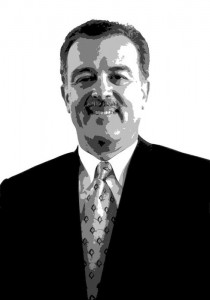 Watching his mother, an immigrant from Cuba, develop Type 2 diabetes when she was in her 40s made Jorge Font (’80, P ’11) wonder: Why do immigrants in the United States suddenly start getting health conditions at a rate that far exceeds the rate in the country they came from? “That happened with the Italians, the Japanese and just about every wave of immigrants,” says Font. “A prominent doctor once said to me (that) as a country we’re very good at manufacturing disease.”
Watching his mother, an immigrant from Cuba, develop Type 2 diabetes when she was in her 40s made Jorge Font (’80, P ’11) wonder: Why do immigrants in the United States suddenly start getting health conditions at a rate that far exceeds the rate in the country they came from? “That happened with the Italians, the Japanese and just about every wave of immigrants,” says Font. “A prominent doctor once said to me (that) as a country we’re very good at manufacturing disease.”
Font’s interest in health care trends among different populations continued at Wake Forest, where he majored in anthropology. He took a summer program with now-retired anthropology professor David Evans (P ’97) at his Overseas Research Center on Roatán Island in Honduras. There, Font and other students studied the locals’ health. “People on the island had previously been farming, fishing and hunting, but as they started changing to a Western lifestyle, they began getting all the typical Western degenerative disorders,” says Font.
Since then, Font, who is based in Houston, Texas, has spent the majority of his career as a consultant to Fortune 500 companies and state governments, helping them figure out how to lower medical costs and improve the health and productivity of their workforce. One of the biggest changes that he’s noticed over the years is a shift away from incentive-only programs, such as discounts for going to the gym frequently. “You’d have the worried well and the triathletes use the gym, and the people who are most at-risk wouldn’t go,” he says. “The carrot by itself doesn’t always work. You may need a little bit of a stick.”
 For instance, he has helped some employers raise the level of employee engagement in order to obtain benefits. A company might require that an employee get a basic health screening or else pay a larger percentage of the premium. Or if someone smokes and refuses to try a cessation method, a company could require a higher employee contribution to the premium.
For instance, he has helped some employers raise the level of employee engagement in order to obtain benefits. A company might require that an employee get a basic health screening or else pay a larger percentage of the premium. Or if someone smokes and refuses to try a cessation method, a company could require a higher employee contribution to the premium.
“The Affordable Care Act is imposing something called an excise or ‘Cadillac’ tax beginning in 2018. If an employer’s health care spending is above a certain level, it’ll be hit with a tax that’s 40 percent of the excess,” says Font. “It’s estimated that 48 percent of large companies are likely to be affected in 2018. And 82 percent are likely to be hit by 2023. So companies are getting aggressive and doing everything they can to ratchet down health care spending while addressing behaviorally modifiable causes of poor health.”
Helping people get healthy fuels Font’s love for his work. “I can’t even count how many employees did a screening at work and were basically taken directly to urgent care because their blood pressure or glucose readings were through the roof and they didn’t know,” he says. “You have those teachable moments because you did something and you changed lives.”
Rachel Venuti Bullock (’02) of Los Angeles, California
 SupportGroups.com is one of 50 websites managed by Rachel Venuti Bullock (’02), vice president of operations at Deep Dive Media — and with hundreds of thousands of members, it’s one of the company’s most popular sites. “It’s a safe, anonymous space that allows members to join more than 220 condition-specific groups, seek emotional support and find other members who are confronting the same problems,” says Bullock, of Los Angeles, California.
SupportGroups.com is one of 50 websites managed by Rachel Venuti Bullock (’02), vice president of operations at Deep Dive Media — and with hundreds of thousands of members, it’s one of the company’s most popular sites. “It’s a safe, anonymous space that allows members to join more than 220 condition-specific groups, seek emotional support and find other members who are confronting the same problems,” says Bullock, of Los Angeles, California.
A member can join multiple groups at once — “loneliness,” “acne” and “insomnia,” for example — post about how he or she is feeling, and other group members can comment to empathize, answer questions, provide inspirational quotes and offer solutions that have worked for them. “We notice some people join a certain group, such as cancer, to talk about a recent diagnosis, but they might end up in the depression group,” says Bullock. “Others kind of graduate from seeking help to providing help to others. It’s amazing to see so many people supporting each other.”
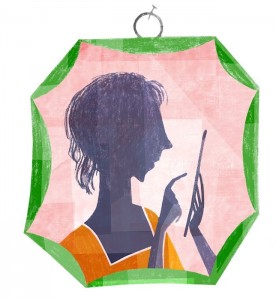 Unlike other social media platforms, where users tend to post selfies full of smiles, photos of a delicious meal they prepared or news about a recent promotion, SupportGroups.com is a space where members don’t have to brag or pretend that everything is OK. “My hope is for everyone to have a LinkedIn account for work stuff, a Facebook page to talk about what’s going right in your life and a SupportGroups page to talk about what’s going wrong in your life,” she says.
Unlike other social media platforms, where users tend to post selfies full of smiles, photos of a delicious meal they prepared or news about a recent promotion, SupportGroups.com is a space where members don’t have to brag or pretend that everything is OK. “My hope is for everyone to have a LinkedIn account for work stuff, a Facebook page to talk about what’s going right in your life and a SupportGroups page to talk about what’s going wrong in your life,” she says.
Bullock’s professional background in publishing and technical project management set her up for success at this job, as did her time as editor-in-chief of Three to Four Ounces, the Wake Forest student art and literary magazine. “I learned how to manage a budget, run a meeting, recruit people, manage a project, meet deadlines, how to work with writers, how to select artwork and how to plan an event,” she says.
At first, Bullock considered majoring in biology, but she credits Tom Phillips (’74, MA ’78, P ’06), director of the Wake Forest Scholars Program, with steering her down a path that was a better fit. “I was a little lost. I remember going to Tom’s office in the old admissions building and having tea one afternoon. He totally got what I was going through and gently pushed me a little to join Three to Four Ounces —and maybe, just maybe, major in English. That saved me,” she says. The Presidential Scholar for writing became an English major.
Dr. James Hamblin (’05) of Washington, D.C.
 I can tell you ‘sad desk lunch’ is a public health hazard. There are many places you can eat besides your desk, like in a common area or a kitchen. If there are plants in your office, eat by the plants.
I can tell you ‘sad desk lunch’ is a public health hazard. There are many places you can eat besides your desk, like in a common area or a kitchen. If there are plants in your office, eat by the plants.
So begins one humorous video from the “If Our Bodies Could Talk” series hosted by physician James Hamblin (’05), senior editor at The Atlantic magazine. In each video, he addresses a health topic, such as napping, aging or smoking, with offbeat commentary.
An Eagle Scout from a family of dentists, Hamblin took an unusual path to the job. After pre-med studies at Wake Forest, he went to medical school at Indiana University, did an internship in general medicine at Harvard Medical School and specialized in radiology at Northwestern University and UCLA. And then he resigned. “People say that you’ve got to do something you love, and as a college student, it’s hard to understand what it’s like to do something every day of your life. Radiology is a lovely concept, but the day-to-day is sitting by yourself in a dark room for 10 hours. You’re generating dry reports with simple, declarative sentences,” says Hamblin.
 Whenever he wasn’t studying and practicing medicine, he had been nurturing the creative part of his brain. At Wake Forest, he performed in the Lilting Banshees comedy troupe. “That got me comfortable onstage and in front of a camera, and taught me how to write sketches that had a beginning, middle and end,” he says. In Chicago, he completed the iO (formerly Improv Olympic) school and in Los Angeles, he completed the Upright Citizens Brigade school, another improvisation forum. The skills he learned at those schools — places that have spawned comic giants such as Tina Fey, Mike Myers and Aziz Ansari — have been helpful in crafting his videos, which are loosely outlined but largely ad-libbed.
Whenever he wasn’t studying and practicing medicine, he had been nurturing the creative part of his brain. At Wake Forest, he performed in the Lilting Banshees comedy troupe. “That got me comfortable onstage and in front of a camera, and taught me how to write sketches that had a beginning, middle and end,” he says. In Chicago, he completed the iO (formerly Improv Olympic) school and in Los Angeles, he completed the Upright Citizens Brigade school, another improvisation forum. The skills he learned at those schools — places that have spawned comic giants such as Tina Fey, Mike Myers and Aziz Ansari — have been helpful in crafting his videos, which are loosely outlined but largely ad-libbed.
The Atlantic job — writing the magazine’s monthly health column and hosting the video series — has been a perfect fit for him. It combines his interest in science with his interest in writing and comedy. He notes how satirical TV hosts like Jon Stewart are able to talk about such serious topics as terrorism and injustices, “yet a lot of times when we’re talking about our health and medicine, which a lot of times is equally grave, it’s thought it only has to be addressed in a super serious way. And it doesn’t,” he says. “Right now, I think people like that mix of entertainment and information.”
As for what’s next, he’s in talks with some producers about possibly developing a TV show. To call him a budding celebrity wouldn’t be an overstatement. “Last night I was in line at Whole Foods looking at my phone, and someone tapped me on the shoulder and was like, ‘Oh my God, are you James Hamblin?’ It happens every couple of days. But also we’re in D.C., and everyone’s wonky and nerdy and reads The Atlantic, and that’s my demographic.”
Alannah DiBona (’04) of Somerville, Massachusetts
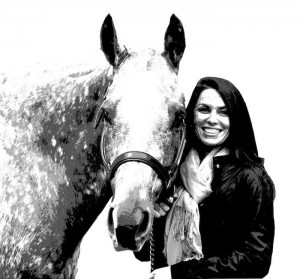 Alannah DiBona (’04) started riding horses at age 5, after being inspired by a girl in her neighborhood who rode. By age 10, she was competing in equestrian competitions. “I was a pretty solitary kid. So to feel connected to these huge animals and feel so empowered was really confidence-building,” she says. Her love for horses was so deep that when she got to Wake Forest she eventually became captain of the equestrian team.
Alannah DiBona (’04) started riding horses at age 5, after being inspired by a girl in her neighborhood who rode. By age 10, she was competing in equestrian competitions. “I was a pretty solitary kid. So to feel connected to these huge animals and feel so empowered was really confidence-building,” she says. Her love for horses was so deep that when she got to Wake Forest she eventually became captain of the equestrian team.
A communication major and art history minor, DiBona wasn’t sure what she wanted to do for a living at first, but she knew that she wanted to help people. That passion began during her time as a resident adviser. “I loved being the sounding board for my residents and was amazed by the way that people frequently were able to move forward through and beyond their own challenges with just a little support and encouragement,” she says.
She initially worked in public relations but wasn’t finding fulfillment. What she did find satisfying: time away at a barn, riding horses and chatting with the teens who rode there. So she followed her heart, went to graduate school for counseling at Lesley University and soon after, with the help of an encouraging Lesley professor and word-of-mouth referrals, started her own business called Wind Horse Counseling in Concord, Massachusetts.
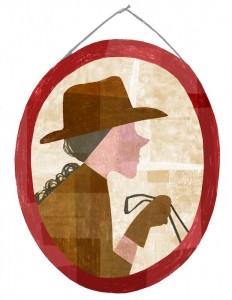 At Wind Horse Counseling, DiBona and her teen clients do a mixture of talk therapy, horse grooming, walking with horses and riding. One client had been attacked by a person from behind and had been experiencing anxiety ever since. DiBona helped her develop a trusting relationship with a horse — to the point where she could walk with a horse around a ring in the dark and the horse could gently nudge her shoulder from behind without triggering a panic attack. DiBona also works with teens who have eating disorders. “I’ll show them how to feed and love their horses. They’ll even go so far as to braid flowers into their manes. But they won’t take that time to nurture themselves. So you get into these discussions about self-worth and that’s really powerful,” she says.
At Wind Horse Counseling, DiBona and her teen clients do a mixture of talk therapy, horse grooming, walking with horses and riding. One client had been attacked by a person from behind and had been experiencing anxiety ever since. DiBona helped her develop a trusting relationship with a horse — to the point where she could walk with a horse around a ring in the dark and the horse could gently nudge her shoulder from behind without triggering a panic attack. DiBona also works with teens who have eating disorders. “I’ll show them how to feed and love their horses. They’ll even go so far as to braid flowers into their manes. But they won’t take that time to nurture themselves. So you get into these discussions about self-worth and that’s really powerful,” she says.
DiBona calls the equine-human bond “magical” and says the animals read people and mirror how they feel and act. “If you’re standoffish, they’ll be standoffish,” she says. “It’s pretty hard to deny.”
To improve the wellbeing of her clients, she focuses on helping them silence voices of defeat (“can’t,” “won’t,” “don’t”) and find their balance, both in a mental and physical sense. She hopes to someday start a nonprofit devoted to this type of equine therapy, “but for now, every day feels like a privilege.”
Leon Bullard (’95) of Raleigh, North Carolina
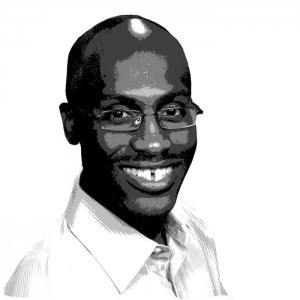 He was a little jittery as he stepped to the line, but Leon Bullard (’95), a former indoor and outdoor track runner at Wake Forest, was ready to prove himself once again at age 40. When the gun sounded, he sprinted as fast as he could for 400 meters (one lap around the track), blew by the competition and won the gold medal in his 40-to-44 age group by two hundredths of a second with a blistering time of 50.73 — just two seconds slower than his fastest time 20 years earlier.
He was a little jittery as he stepped to the line, but Leon Bullard (’95), a former indoor and outdoor track runner at Wake Forest, was ready to prove himself once again at age 40. When the gun sounded, he sprinted as fast as he could for 400 meters (one lap around the track), blew by the competition and won the gold medal in his 40-to-44 age group by two hundredths of a second with a blistering time of 50.73 — just two seconds slower than his fastest time 20 years earlier.
This performance, at the USA Track & Field Masters Outdoor Championships in July 2014, was something that Bullard had been dreaming about, and in storybook fashion, the meet just happened to take place at Wake Forest. “The meet rotates to different places every year. When they announced that the 2014 championships would be held at Wake Forest, I went, you mean to tell me, the year I turn 40, the year of my goal, that the championships are going to be at my home track, in my home state? Are you kidding me?” says Bullard.
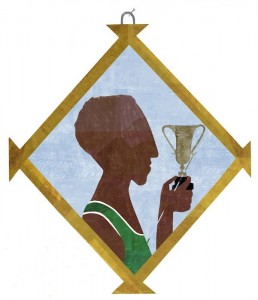 When Bullard talks about fitness and wellness, you can hear the excitement in his voice. “I tell people that your body is your most valuable possession. And because of that, you have the responsibility and the privilege of being able to take great care of it,” he says. As a part-time personal trainer and a full-time ergonomist who manages Relax the Back in Raleigh, North Carolina, a store that sells chairs, pillows and other items for offices and homes that relieve back and neck pain, the former business major is a busy guy.
When Bullard talks about fitness and wellness, you can hear the excitement in his voice. “I tell people that your body is your most valuable possession. And because of that, you have the responsibility and the privilege of being able to take great care of it,” he says. As a part-time personal trainer and a full-time ergonomist who manages Relax the Back in Raleigh, North Carolina, a store that sells chairs, pillows and other items for offices and homes that relieve back and neck pain, the former business major is a busy guy.
On top of all that, he volunteers as chairman of the Wake County Council for Fitness and Health, speaking to groups around the community about the importance of exercise and awarding certificates to local groups that are making strides to help people get moving. He’s also written a motivational book called “Triumph At Last” to help others improve their bodies and minds. To do that, he got up at 5 a.m. every day for a year and a half to write. “That kind of discipline — I learned that from track, from going to practice every day,” he says.
Bullard is thrilled to be working in a wellness field and loves nothing more than helping others look and feel their best. He uses this quote by philosopher Will Durant in summarizing Aristotle’s work “all the time: ‘We are what we repeatedly do.’ That’s what it comes down to. Wellbeing is about taking control of your habits — doing the things that you want to do and avoiding the things that you don’t want to do to create the kind of lifestyle you’re looking for.”
Claire Chu Colangelo (’07) of Chapel Hill, North Carolina
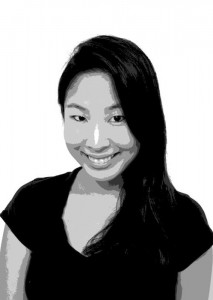 When people — usually women — walk into Compass Center for Women and Families in Chapel Hill, North Carolina, the stories they share with Claire Chu Colangelo (’07), director of Latino Services, are often terrifying. One client suffers from depression and panic attacks because her partner abused her, fled and then threatened to kill her. “It has negatively affected every part of her life — like her employment and caring for her children,” says Colangelo. “It’s this domino effect.”
When people — usually women — walk into Compass Center for Women and Families in Chapel Hill, North Carolina, the stories they share with Claire Chu Colangelo (’07), director of Latino Services, are often terrifying. One client suffers from depression and panic attacks because her partner abused her, fled and then threatened to kill her. “It has negatively affected every part of her life — like her employment and caring for her children,” says Colangelo. “It’s this domino effect.”
Colangelo speaks to this client regularly to offer support and direct her toward resources that might improve her situation. “We really are, building block by building block, trying to re-instill that notion of self-worth and safety as much as we can,” she says.
With her clients, who are Latina and experiencing emotional, physical or sexual abuse, Colangelo typically speaks in Spanish, one of her college majors. She delicately talks to these women about how they can have a voice in their relationships while still celebrating their culture. “I am very sensitive to this because I am a child of Korean immigrants,” she says. “You don’t want them to feel like you’re imposing a Western or other culture upon their culture.”
 She can sense when her clients trust her; they start smiling and calling her “Clarita” (Spanish for “little Claire”). “It’s a term of endearment. When you get that, you know that you have created a real bond that will make it even more feasible for them to move on to the next stage of healing.”
She can sense when her clients trust her; they start smiling and calling her “Clarita” (Spanish for “little Claire”). “It’s a term of endearment. When you get that, you know that you have created a real bond that will make it even more feasible for them to move on to the next stage of healing.”
The healing tends to happen incrementally. One day, Colangelo might teach a client how to prepare a “safe bag” in case she needs to suddenly grab her things and leave the house. Another, she might help a client obtain a domestic violence protective order, which a court issues to prohibit contact by a client’s abuser and establish legal consequences if he does.
Colangelo’s other college major in psychology helped her more deeply understand how people think and feel, and a poetry class with the late Maya Angelou (L.H.D. ’77) helped define her passion. Angelou frequently referenced this quotation by the playwright Terence: “I am human: nothing human is alien to me.” “I remember thinking, ‘Wow. This is why I want to work in this area.’ ” She went on to earn a master’s degree in public health at UNC-Chapel Hill in 2012. “The disempowerment of one human is a shared injustice,” she says.
Even though seeing “the muck of relationships that are hidden under the rug,” as Colangelo puts it, is taxing at times, there is nothing else that she’d rather be doing at this stage in her life. “If I can look at the clock and think it’s 10 a.m. but it’s 5 p.m. and the day has flown by, and it has been full of working and being engaged with other people and feeling like I’m doing something rewarding with every minute, I feel like that day has been worth it,” she says.
Austin Harris (’04) of Richmond, Virginia
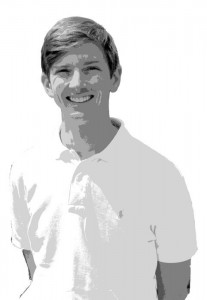 Austin Harris (’04) learned the value of nutritious food early on in life while growing up on a family farm in rural Virginia. “My granddad, who lived next door, would come over to the house at night to drop off a pail of sweet potatoes that he had dug up from the garden earlier in the day,” says Harris. “It’s that type of experience that really gets you thinking — OK, I don’t necessarily need to go to the supermarket and buy the yams in a can of sweet syrup. I can actually go get this stuff from the backyard and it’s better for me.”
Austin Harris (’04) learned the value of nutritious food early on in life while growing up on a family farm in rural Virginia. “My granddad, who lived next door, would come over to the house at night to drop off a pail of sweet potatoes that he had dug up from the garden earlier in the day,” says Harris. “It’s that type of experience that really gets you thinking — OK, I don’t necessarily need to go to the supermarket and buy the yams in a can of sweet syrup. I can actually go get this stuff from the backyard and it’s better for me.”
The first in his family to go to college, Harris didn’t plan at first to work in a health-oriented field; he studied analytical finance at Wake Forest. One of his extracurricular activities was becoming the business manager of the Old Gold & Black, where he handled the school newspaper’s roughly $150,000 annual budget and coordinated advertising and circulation.
After graduating and working for two different investment-banking firms, Harris met a guy named Shane Emmett (JD ’09). “This mutual friend emailed me and said, ‘You have to meet this guy, because he’s up to something cool. I think you guys would see eye to eye — just trust me on this one,’ ” says Harris.
 Emmett had launched a startup called Health Warrior, which develops nutritious, 100-calorie snack bars. While many snack bars list sugar as the first (and main) ingredient, the top ingredients in Health Warrior bars are chia seeds, which are high in omega-3s, protein and fiber. At the time of their meeting, Whole Foods had just shown interest in putting the product in stores nationwide and Emmett was looking for someone to manage operations and finance. “It was that zero-to-60 moment,” says Harris.
Emmett had launched a startup called Health Warrior, which develops nutritious, 100-calorie snack bars. While many snack bars list sugar as the first (and main) ingredient, the top ingredients in Health Warrior bars are chia seeds, which are high in omega-3s, protein and fiber. At the time of their meeting, Whole Foods had just shown interest in putting the product in stores nationwide and Emmett was looking for someone to manage operations and finance. “It was that zero-to-60 moment,” says Harris.
Harris immediately felt that his values aligned with the company’s focus on wellness and its interest in stemming America’s obesity epidemic. “So I traded in my banker suit and loafers for jeans and sneakers,” says Harris, who is chief financial officer for Health Warrior in Richmond, Virginia. “Everyone thought I was crazy!”
But it’s Harris who has gotten the last laugh. The company now has products in more than 7,000 stores nationwide and has 19 full-time and more than 30 part-time employees. “Chia is a key ingredient in some of the fastest-growing foods in the grocery store,” he says. “You have Dr. Oz talking about it now. It’s really come a long way.”
Jane Bianchi (’05) is a freelance writer based in Tampa, Florida. See janebianchi.com.













